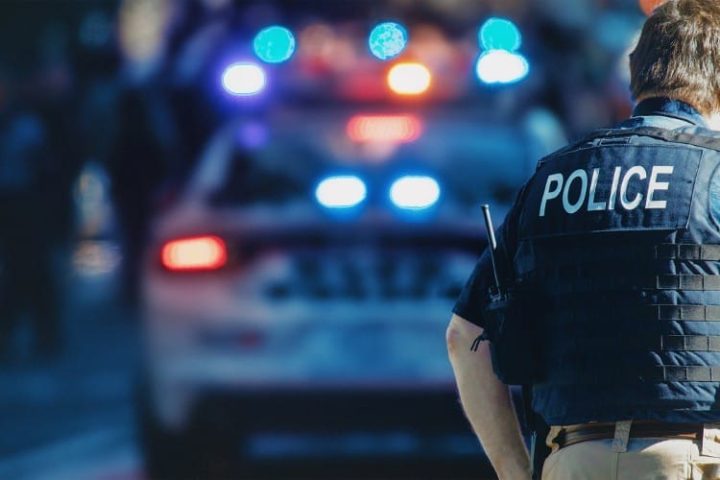
Washington State is embarking on a massive experiment in police reform following the “racial justice” protests that took place last year, as nearly a dozen laws took effect this past week. While some local lawmakers, along with Democratic governor Jay Inslee, praise the new legislation, many police officers argue it would complicate their work and incentivize criminal activity.
A slew of bills was signed into law in the Evergreen State since last summer in a bid to “uproot the systemic racism” in the police, and cover virtually all aspects of policing, starting from the background checks officers undergo before they’re hired, to the situations in which the police are authorized to use force, to the establishment of an entirely new state agency to review police use of deadly force.
Proponents of the reform said they would create the nation’s “strongest police accountability” and help undo “racial inequity” in the justice system — “a mandate from the people to stop cops from violating our rights and killing people,” said Sakara Remmu, of the Washington Black Lives Matter Alliance.
The law-enforcement officials, however, still remain uncertain how officers might respond — or not respond — to such situations as active crime scenes, welfare checks, mental health crises, and many others.
The Seattle Times analyzed the legislation and outlined some of the changes. Among other provisions, the new laws ban chokeholds, neck restraints, and no-knock warrants, and limit the use of tear gas and military equipment. To prevent fellow officers from standing by while others decide to use force, new rules now require officers to intervene and to report misconduct committed by other officers. The rules also restrict the situations when officers can engage in car chases; make it easier to decertify police for “bad” acts; make it easier to sue individual officers; and require police to use “reasonable care” in carrying out their duties, including using all appropriate de-escalation tactics before using force.
Even more significant, noted the Times, is a change in when officers can use “physical force” — a term that isn’t defined in the new law, but which is typically interpreted to mean force as minor as handcuffing someone. While the attorney general has been tasked with developing a model policy on using force, it is only expected to be complete by next July. For now, agencies have been consulting with lawyers to determine what the new law allows police to do, and what it does not.
Moreover, under one of the new laws, police now need probable cause — a higher standard compared to the “reasonable suspicion” approach used before. While “reasonable suspicion” refers to a justifiable suspicion that is based on specific facts or circumstances that justifies stopping and sometimes searching (as by frisking) a person thought to be involved in criminal activity at the time, “probable cause” is based on evidence that the person committed or was about to commit the crime — before the police use force against them. Lewis County Sheriff Robert Snaza explains that that means if a property owner calls police to report a potential robbery taking place at his home, and deputies arrive and witness individuals walking off the property, they no longer are able to use force to detain those individuals while they further investigate, even if those people match the description of the suspects.
The police can also use force if there’s an imminent threat of injury, but deadly force use is reserved exclusively to protect against an imminent threat of serious injury or death — which is also quite confusing and potentially endangers policemen.
President of the Seattle Police Officer Guild Mike Solan told America’s Newsroom that the Seattle “activist class” has stopped police from being effective, putting public safety at risk. Steven Strachan, executive director of the Washington Association of Sheriffs and Police Chiefs, similarly said the new laws would lead to a further increase in crime.
State Representative Jesse Johnson, who sponsored bills on police tactics and use of force, acknowledged some clarifications are necessary. “We have to create new policies, because what we were doing before was not working,” Johnson argued. “What we wanted to do with these bills is set an expectation that officers de-escalate and that there’s less lethal enforcement of the law. A lot of the pushback we’re getting is because it’s a paradigm shift.”
Meanwhile, Washington, just like many other states across the nation, is seeing a mass exodus of officers from police forces. In Seattle, as of June 2021, almost 275 police officers have left the department since 2020. “The staffing crisis has never been worse, with the lowest number of deployable staff since the 1980s,” Jason Rantz reports. In May, Interim Chief Adrian Diaz acknowledged only 1,088 officers are available for deployment, while the benchmark for this department is 1,400. The substantial budget cuts and low morale due to a lack of political support from local leadership are cited as the main drivers of the personnel’s departure. The new restrictive laws will likely have a dreadful effect on already demoralized forces that are tasked with addressing a skyrocketing crime rate.




